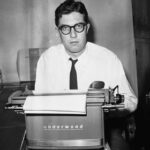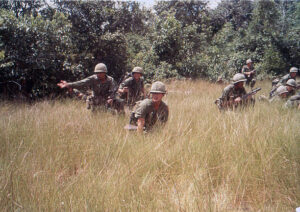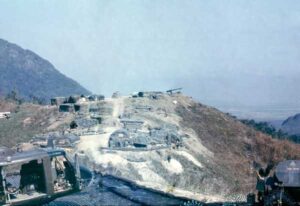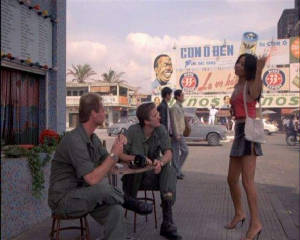(n)On Strategy
Vietnam – the Unwinnable War
Harry Summers, a Colonel of Infantry, published his treatise titled On Strategy in 1982. Colonel Summers postulated the American military accomplished great feats in the Vietnam War. Achievements such as the movements of men and materiel to and from the battlefield. Winning all major battles during the military conflict but squandering its successes when America capitulated to a technologically inferior enemy and then abandoned the war.
Vietnam fashioned a war different from the traditional European war model conduct of von Clausewitz. Vietnam was insurgency and stealth, not full frontal assault. While the final goal of any war or armed conflict is victory, the American leaders of Vietnam embraced no clear rationale about how to achieve any final winning. American military leaders were experienced only in the traditional warfare of possession – the attainment of enemy property and population. With Vietnam, no property was taken, and the population remained ideologically elusive to control from its’ foreign American invaders.
The American invaders became long serving mercenaries to a corrupt South Vietnam government funded by an equally corrupt American government (although the American public would not be aware of this for many years).
No General could have ‘won’ the Vietnam war – it was unwinnable from the start. The strategy was ‘no strategy.’ The size of the US logistical bases that were built was mind boggling – the guys in the rear with the gear could only read about what was happening outside the forward combat base perimeter wire. To them there was no war, only the day-to-day continuum of organizational functioning. Saigon, Bien Hoa, Danang – almost like stateside duty.
Even at Division HQs (AMERICAL at Chu Lai) staffers wore starched khaki uniforms. Occasionally the up-country combat warriors would assault the Division HQ ‘O’ clubs – what a laugh to see the strap hangers in starched jungle fatigues with their SOI (signal operating instructions) codebooks hanging on dog tag chains and tucked inside their upper pockets. Coffeepot Commandos trying to look cool. Drug store cowboys were more ferocious.

The White House Warriors, Pentagon Princes, and the Saigon Sycophants forgot where the war was waged – the battlefields were in the villages, the jungle, and on the rice paddies. Not in the office suites of senior commanders and political advisers or in the newsrooms of the Stars & Stripes and United Press International.
There was no Fulda Gap in Vietnam. The battlefield changed almost daily – the enemy was neither in fixed locations nor visibly accessible. The war was waged on the home territory of the Viet Cong, the NVA, and the silent sympathetic local peoples. Ho Chi Minh, not von Clausewitz would win.
The HQ guys didn’t understand what was happening in the field – – no one wanted to hear the ‘bad news.’ US troops became disenchanted and lackadaisical – no one wanted to die or be horrifically wounded for senseless, mis-managed, and never-ending monotonous events.
The ‘enemy’ initiated the fight – where and when various battles were fought. Hiding in the jungles or hiding in spider holes, they merely waited for the Americans to stumble into their prepared ambushes. American soldiers hated the night, the bad guys utilized it to their advantage. While the Americans were hunkered down for the night, Charlie moved men and equipment to the next battle zones for future engagements. Charlie owned the night.
When ‘codes’ would visit the ‘field troops/bases’ it was a dog & pony show. The lower echelon commanders did not want the codes to see reality – ergo, they provided window dressing, spit & polish, etc. to ‘look good.’ Landing in field locations for resupply drop-off, one could smell the pungent human & animal odors, see the wretched & dirty living conditions of the grunts. Not something the ‘codes’ wanted to see.

Imagine spending 30 days ‘in the bush’ during the cold and wet monsoon season or the hot and humid summer months with no shelter? Constantly ‘on the lookout’ for ambushes, trip wires, booby traps – swatting insects, eating cold C-rations, sleeping on the ground, not to mention where to site the latrines so the odors wouldn’t alert Charlie that the Americans were in
the area.
At least the Fire Support Bases atop mountain ridges had some semblance of comfort and security in fortified bunkers. Hot food was sometimes available by heating a can of your favorite ‘C’ rations. But hey, the generals were so benevolent that the field grunts got 3 days R&R in the rear every 30-day field duty cycle. Steaks, beer, maybe a movie or two. And best of all – refreshed jungle fatigues, new socks, new jungle boots. All the gear and glamour a guy needed for another 30 days ‘in the bush.’ War time comfort was never so great!

The American military became an Army of Occupation for over 15 years. The war would mercilessly continue with over 58,000 American lives lost for an unknown cause. Thousands of lives wasted for what? Every commander was looking for his next promotion – the building blocks to retirement. To appease America’s families and end the political local draft boards, a lottery was implemented to determine who among the youth would next be involuntarily conscripted for military duty.
A lottery however already existed in Vietnam – an 11B was a rifleman in the bush, a 71L was a clerk typist – the luck of the draw when entering Army basic training. While you were sweating in the jungle, your counterpart was enjoying an air-conditioned office.

You were swatting insects; your buddy was swatting Sigh-gone business girls. You were drinking warm water while he was drinking cold beer. Take your pick – Xin Loi. Survival was the name of the game and boarding that Freedom Bird home.
(c) Copyright – 2023 – Vic Bandini